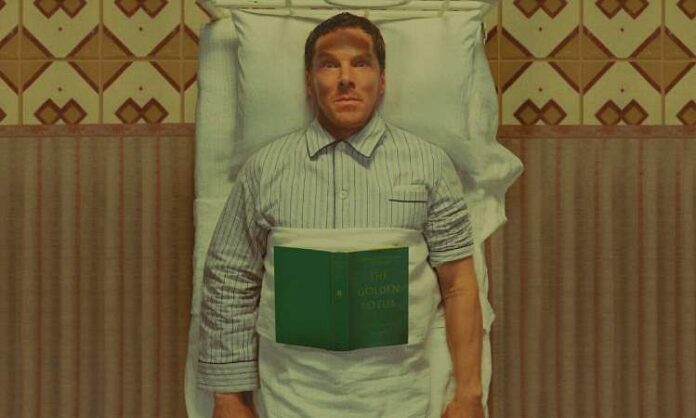(This film is part of the four-part short adaptation of Wes Anderson’s adaptation of Roald Dahl’s works)
What comes as the last and fitting segment in Wes Anderson’s four-set short adaptation of Roald Dahl’s works is Poison, which is centred on concentrated power dynamics.
Set in British colonial India, Poison stars Benedict Cumberbatch as staunch Englishman Harry Pope, who in significant portions lies on a bed, under the fear that a krait (a type of venomous snake) has crawled up on him and can bite him anytime. In comes Dev Patel’s Timber Woods, Harry’s servile friend who calls a doctor, Ganderbai (Ben Kingsley), and together they try to chase away the snake from Harry.
Director: Wes Anderson
Cast: Ben Kingsley, Dev Patel, Benedict Cumberbatch, Ralph Fiennes
Streamer: Netflix
Poison’s screenplay has to be the raciest out of the four shorts, which while using similar aesthetics and narrational style, points out bigger issues of racism and how power dynamics can shift according to who owns the shorter side of the stick. At one point, when Woods and Ganderbai try to help Pope, the former can’t help but notice the richness of Pope’s pajamas that have a mother of pearl as a fly button. Pope might be the one who is the most restricted by his mobility, but that does not cost him his dominance when the two men do all their might to save him from the krait. This is further instilled when the question of where is the snake, if at all there was a creature, results in a racist slur being thrown at Ganderbai by Pope. Not a shocking occurrence in colonial India, Poison is a short that exemplifies what it means to own unparalleled power over someone.
As much as Benedict showcases a masterful performance, especially when his character requires him to communicate with his face and voice for most parts, Anderson gives a compelling touch when these characters come with already-lived experiences. For example, if we know the luxury that the Pope comes with just through the luxury of a fly button on his pajamas, we get a brief interlude of Woods and what he has been through. Just as when Ganderbai and Woods try to spread chloroform across the bed to sedate the krait, we get a flashback of soldier Wood, who was treated with the same chemical for the scar he received in one of the battles. Even if his now-faintly visible scar does not, his soldier uniform does give away a little more of Woods, which is perfectly played by Patel.
It is left up to the viewers to see how Dahl and Anderson have treated the krait. Be it a mental illness that perhaps can never have a physical identity and yet leave a detrimental impact, or a slimy creature capable of having immense power, changing the paradigm of the room. Either way, Poison understands its assignment and communicates the message, in the most symbolism-induced way. That not all monsters need to be under the bed crawling. Some can still be inside the heads of many. Poison also asks a pertinent question. Who is the monster? Is it the krait that took an instance control of the man on the bed, or Pope, who despite all his restrictive capture of the krait, still poses a supremacy of all kinds?
#concise #play #power #dynamics #Cinema #express

